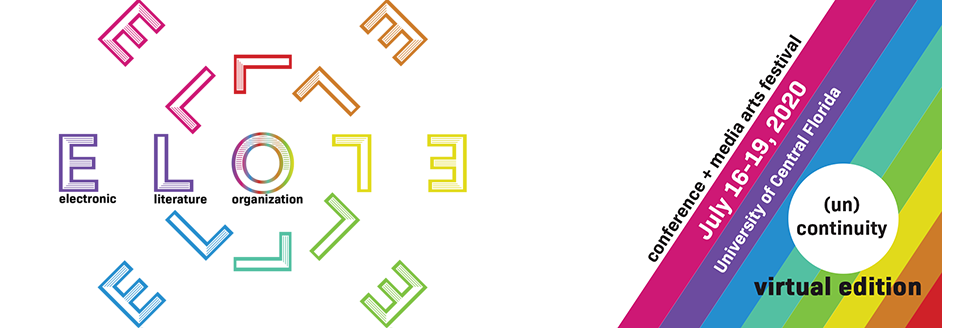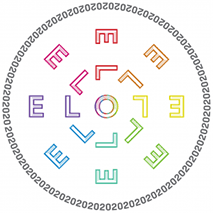Loading...
Submission Type
Conference Talk - Individual
Abstract
"Compasses" is a collection of minimalist neologistic poems produced with a machine learning model of spelling and phonetics, published recently in Andreas Bülhoff's sync series. This talk situates the work in the context of my own practice as a computational poet, and in the broader context of avant-garde poetry as a whole. I describe the methodology and models used to produce the work, along with the open source framework (called Pincelate) I created to facilitate this work and other similar work.
The model used to produce Compasses has two parts: a speller, which spells words based on how they sound, and a sounder-out, which sounds out words based on how they're spelled. In the process of sounding out a word, the sounder-out produces a fixed-length numerical vector known as a "hidden state": a condensed representation of a word's phonetics. The speller can then use the phonetic information contained in this hidden state to produce a plausible spelling of the word. In "Compasses," I use this model to generate new imaginary words that exist in the negative phonetic spaces between the phonetic hidden states corresponding to names of members of well-known quartets.
The expressive potential of English spelling—and its tenuous but rich relationship with phonetics—lies at the intersection of the interests of minimalist poets, nonsense poets, and sound poets alike. Poems like Aram Saroyan's "lighght," Lewis Carroll's "Jabberwocky" and Elsa Von Freytag-Loringhoven's "Eigasing Rin Jalamund" (for example) operate only by virtue of the reader's knowledge of the conventions of English spelling. Using "Compasses" as a model, I suggest that computational models of these conventions—along with tools to manipulate those models—open up important new avenues for creation in these and other poetic genres.
Compasses: Expressive interpolations of spelling and sound
"Compasses" is a collection of minimalist neologistic poems produced with a machine learning model of spelling and phonetics, published recently in Andreas Bülhoff's sync series. This talk situates the work in the context of my own practice as a computational poet, and in the broader context of avant-garde poetry as a whole. I describe the methodology and models used to produce the work, along with the open source framework (called Pincelate) I created to facilitate this work and other similar work.
The model used to produce Compasses has two parts: a speller, which spells words based on how they sound, and a sounder-out, which sounds out words based on how they're spelled. In the process of sounding out a word, the sounder-out produces a fixed-length numerical vector known as a "hidden state": a condensed representation of a word's phonetics. The speller can then use the phonetic information contained in this hidden state to produce a plausible spelling of the word. In "Compasses," I use this model to generate new imaginary words that exist in the negative phonetic spaces between the phonetic hidden states corresponding to names of members of well-known quartets.
The expressive potential of English spelling—and its tenuous but rich relationship with phonetics—lies at the intersection of the interests of minimalist poets, nonsense poets, and sound poets alike. Poems like Aram Saroyan's "lighght," Lewis Carroll's "Jabberwocky" and Elsa Von Freytag-Loringhoven's "Eigasing Rin Jalamund" (for example) operate only by virtue of the reader's knowledge of the conventions of English spelling. Using "Compasses" as a model, I suggest that computational models of these conventions—along with tools to manipulate those models—open up important new avenues for creation in these and other poetic genres.




Bio
Allison Parrish is a computer programmer, poet, educator and game designer whose teaching and practice address the unusual phenomena that blossom when language and computers meet. She is an Assistant Arts Professor at NYU's Interactive Telecommunications Program, where she earned her master's degree in 2008.
Named "Best Maker of Poetry Bots" by the Village Voice in 2016, Allison's computer-generated poetry has recently been published in Ninth Letter and Vetch. She is the author of "@Everyword: The Book" (Instar, 2015), which collects the output of her popular long-term automated writing project that tweeted every word in the English language. The word game "Rewordable," designed by Allison in collaboration with Adam Simon and Tim Szetela, was published by Penguin Random House in August 2017 after a successful round of Kickstarter funding. Her first full-length book of computer-generated poetry, "Articulations," was published by Counterpath in 2018.
Allison is originally from West Bountiful, Utah and currently lives in Brooklyn.